-
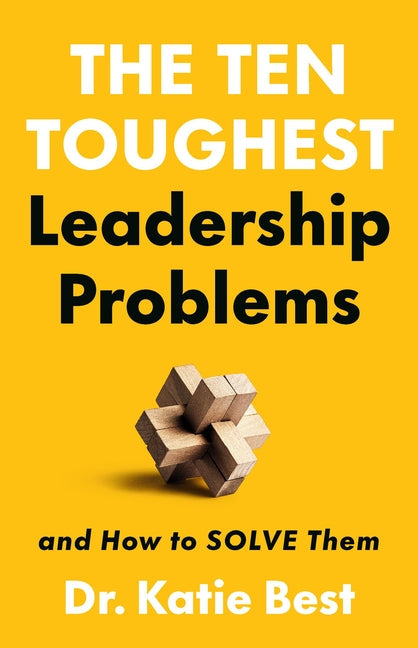
An Excerpt from The Ten Toughest Leadership Problems: And How to Solve Them
An excerpt from The Ten Toughest Leadership Problems by Dr. Katie Best, published by Basic Venture and longlisted for the 2025 Porchlight Business Book Awards in the Leadership & Management category.
-

The Category Winners of the 2025 Porchlight Business Book Awards
The category winners of the 2025 Porchlight Business Book Awards were announced at the company's annual awards and industry appreciation event in New York City.
-

The 2025 Jack Covert Award for Contribution to the Business Book Industry
The 2025 Jack Covert Award was awarded to Lynn Goldberg & Camille McDuffie, of Goldberg McDuffie Communications, at Porchlight Book Company’s Annual Book Awards and Industry Appreciation Event in New York City.
-
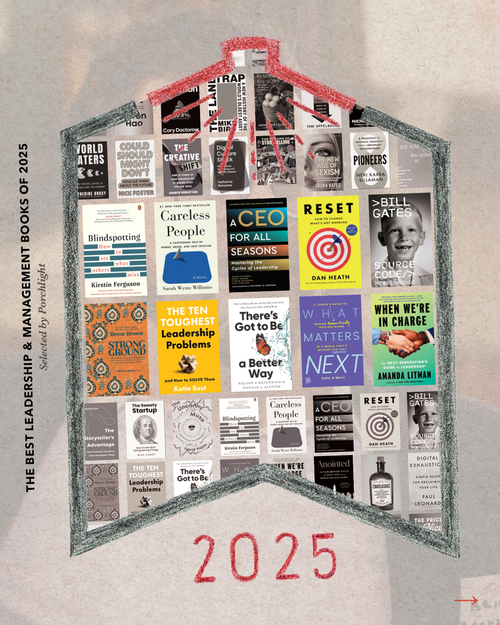
Book Excerpts from the Leadership & Management Category
In an increasingly uncertain world, the job of leaders and managers is becoming even more difficult. These ten books offer guidance on the way through.
-

An Excerpt from When We're in Charge: The Next Generation's Guide to Leadership
An excerpt from When We're in Charge by Amanda Litman, published by Crooked Media Reads and longlisted for the 2025 Porchlight Business Book Awards in the Leadership & Management category.
-

An Excerpt from What Matters Next: A Leader's Guide to Making Human-Friendly Tech Decisions in a World That's Moving Too Fast
An excerpt from What Matters Next by Kate O'Neill, published by Wiley and longlisted for the 2025 Porchlight Business Book Awards in the Leadership & Management category.
-

An Excerpt from There's Got to Be a Better Way: How to Deliver Results and Get Rid of the Stuff That Gets in the Way of Real Work
An excerpt from There's Got to Be a Better Way by Nelson P. Repenning & Donald C. Kieffer, published by Basic Venture and longlisted for the 2025 Porchlight Business Book Awards in the Leadership & Management category.
-
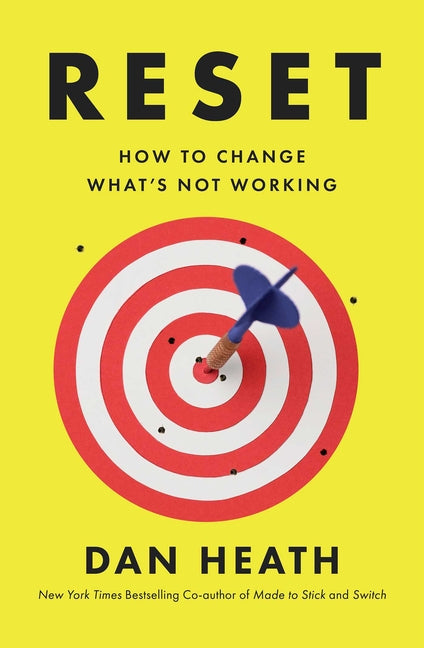
An Excerpt from Reset: How to Change What's Not Working
An excerpt from Reset by Dan Heath, published by Avid Reader Press and longlisted for the 2025 Porchlight Business Book Awards in the Leadership & Management category.
-
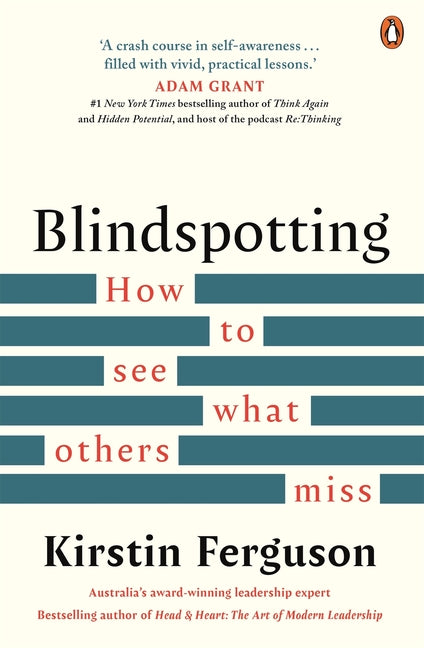
An Excerpt from Blindspotting: How to See What Others Miss
An excerpt from Blindspotting by Kirstin Ferguson, longlisted for the 2025 Porchlight Business Book Awards in the Leadership & Management category.
-

Book Excerpts from the Innovation & Creativity Category
From entrepreneurship to AI, idea-generation to the power of storytelling, these 10 books all help us consider our place in the ongoing project of humanity's progress and how our work might contribute to it.
-
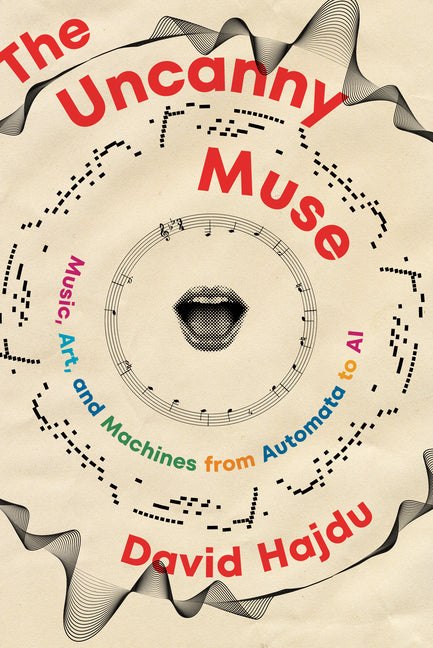
An Excerpt from The Uncanny Muse: Music, Art, and Machines from Automata to AI
An excerpt from The Uncanny Muse by David Hajdu, published by W. W. Norton & Company and longlisted for the 2025 Porchlight Business Book Awards in the Innovation & Creativity category.
-
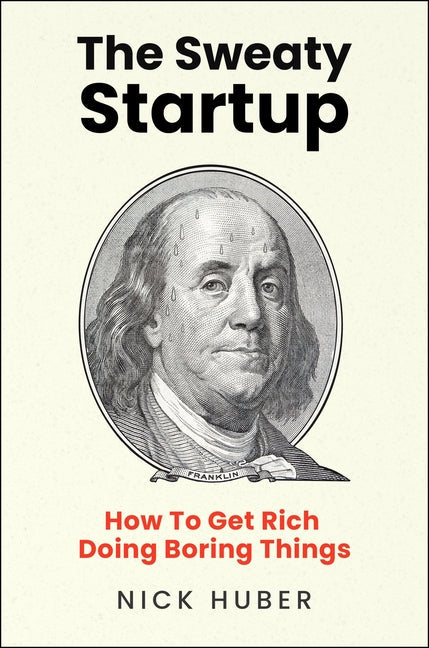
An Excerpt from The Sweaty Startup: How to Get Rich Doing Boring Things
An excerpt from The Sweaty Startup by Nick Huber, published by Harper Business and longlisted for the 2025 Porchlight Business Book Awards in the Innovation & Creativity category.
-

An Excerpt from The Storyteller's Advantage: How Powerful Narratives Make Businesses Thrive
An excerpt from The Storyteller's Advantage by Christina Farr, published by Basic Venture and longlisted for the 2025 Porchlight Business Book Awards in the Innovation & Creativity category.
-
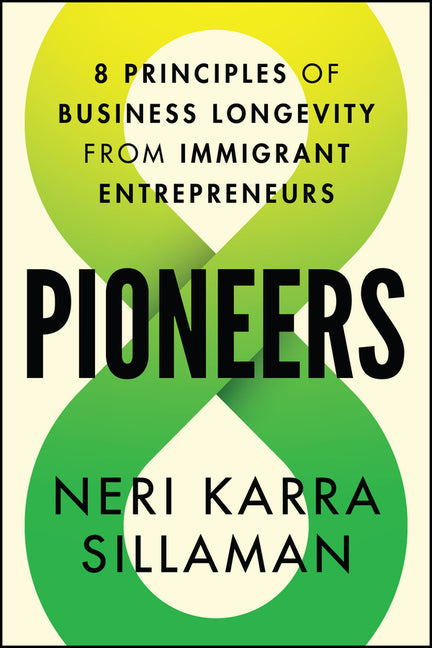
An Excerpt from Pioneers: 8 Principles of Business Longevity from Immigrant Entrepreneurs
An excerpt from Pioneers by Neri Karra Sillaman, published by Wiley and longlisted for the 2025 Porchlight Business Book Awards in the Innovation & Creativity category.
-
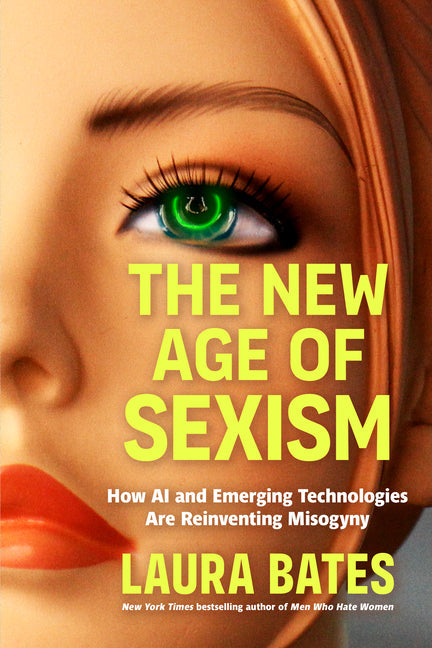
An Excerpt from The New Age of Sexism: How AI and Emerging Technologies Are Reinventing Misogyny
An excerpt from The New Age of Sexism by Laura Bates, published by Sourcebooks and longlisted for the 2025 Porchlight Business Book Awards in the Innovation & Creativity category.
-

An Excerpt from The Future of Storytelling: How Immersive Experiences Are Transforming Our World
An excerpt from The Future of Storytelling by Charles Melcher, published by Artisan Books and longlisted for the 2025 Porchlight Business Book Awards in the Innovation & Creativity category
-
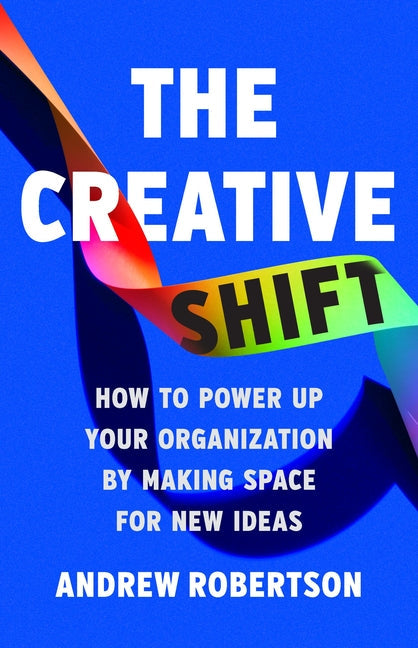
An Excerpt from The Creative Shift: How to Power Up Your Organization by Making Space for New Ideas
An excerpt from The Creative Shift by Andrew Robertson, published by Basic Venture and longlisted for the 2025 Porchlight Business Book Awards in the Innovation & Creativity category.
-

An Excerpt from Could Should Might Don't: How We Think about the Future
An excerpt from Could Should Might Don't by Nick Foster, published by MCD and longlisted for the 2025 Porchlight Business Book Awards in the Innovation & Creativity category.
-

Book Excerpts from the Personal Development & Human Behavior Category
At a time when business books and self-help are increasingly indistinguishable from one another, how do we consider which books to include in our Personal Development & Human Behavior category?
-
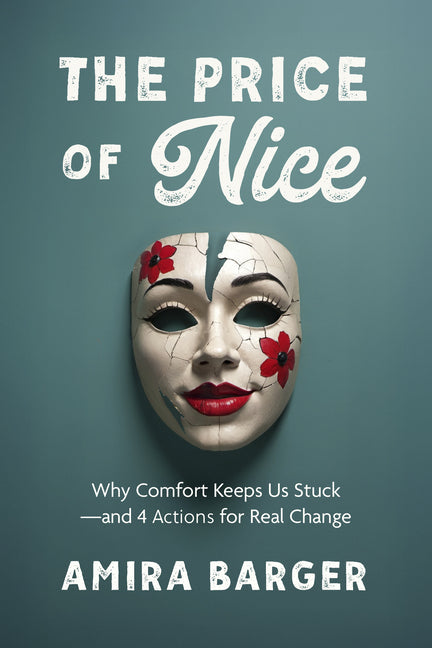
An Excerpt from The Price of Nice: Why Comfort Keeps Us Stuck and 4 Actions for Real Change
An excerpt from The Price of Nice by Amira Barger, published by Berrett-Koehler and longlisted for the 2025 Porchlight Business Book Awards in the Personal Development & Human Behavior category.
-
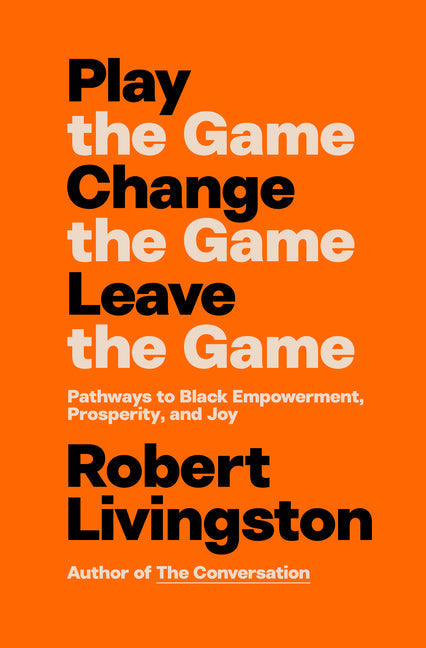
An Excerpt from Play the Game. Change the Game. Leave the Game.: Pathways to Black Empowerment, Prosperity, and Joy
An excerpt from Play the Game. Change the Game. Leave the Game. by Robert Livingston, published by Crown Currency and longlisted for the 2025 Porchlight Business Book Awards in the Personal Development & Human Behavior category.
-

An Excerpt from The Ideological Brain: The Radical Science of Flexible Thinking
An excerpt from The Ideological Brain by Leor Zmigrod, published by Henry Holt & Company and longlisted for the 2025 Porchlight Business Book Awards in the Personal Development & Human Behavior category.
-

An Excerpt from How to Be Free: A Proven Guide to Escaping Life's Hidden Prisons
An excerpt from How to Be Free by Shaka Senghor, published by Authors Equity and longlisted for the 2025 Porchlight Business Book Awards in the Personal Development & Human Behavior category.
-
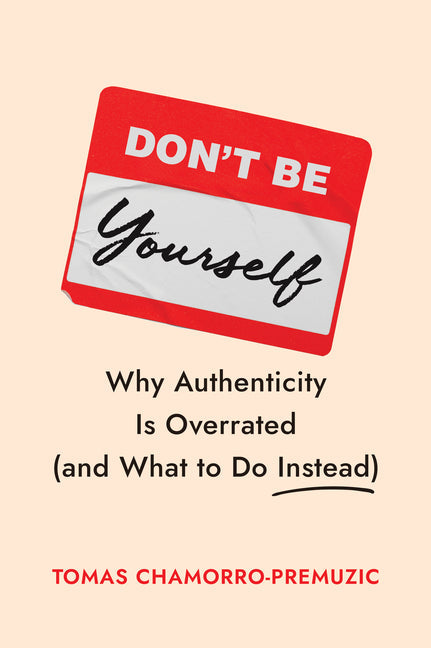
An Excerpt from Don't Be Yourself: Why Authenticity Is Overrated (and What to Do Instead)
An excerpt from Don't Be Yourself by Tomas Chamorro-Premuzic, published by Harvard Business Review Press and longlisted for the 2025 Porchlight Business Book Awards in the Personal Development & Human Behavior category.
-

An Excerpt from Digital Exhaustion: Simple Rules for Reclaiming Your Life
An excerpt from Digital Exhaustion by Paul Leonardi, published by Riverhead Books and longlisted for the 2025 Porchlight Business Book Awards in the Personal Development & Human Behavior category.
-

An Excerpt from Charlatans: How Grifters, Swindlers, and Hucksters Bamboozle the Media, the Markets, and the Masses
An excerpt from Charlatans by Moises Naim and Quico Toro, published by Basic Books and longlisted for the 2025 Porchlight Business Book Awards in the Personal Development & Human Behavior category.
-
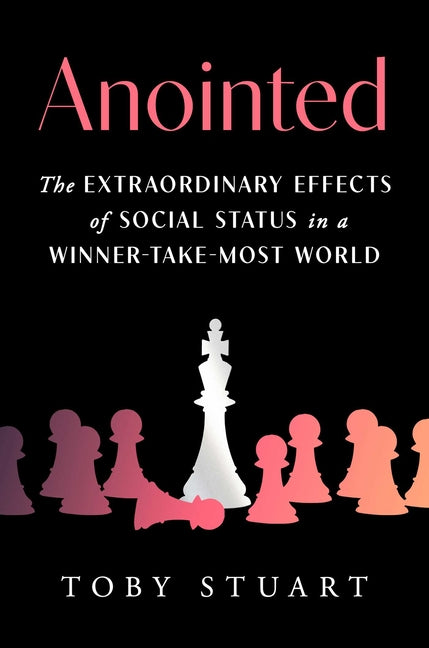
An Excerpt from Anointed: The Extraordinary Effects of Social Status in a Winner-Take-Most World
An excerpt from Anointed by Toby Stuart, published by Simon & Schuster and longlisted for the 2025 Porchlight Business Book Awards in the Personal Development & Human Behavior category.
-

Book Excerpts from the Current Events & Public Affairs Category
At first glance, the 10 books in our Current Events & Public Affairs category appear to be focused almost entirely on the negative. We believe that, once you spend some time between their covers, you will find they point the way to positive change and a more just and prosperous future for all.
-
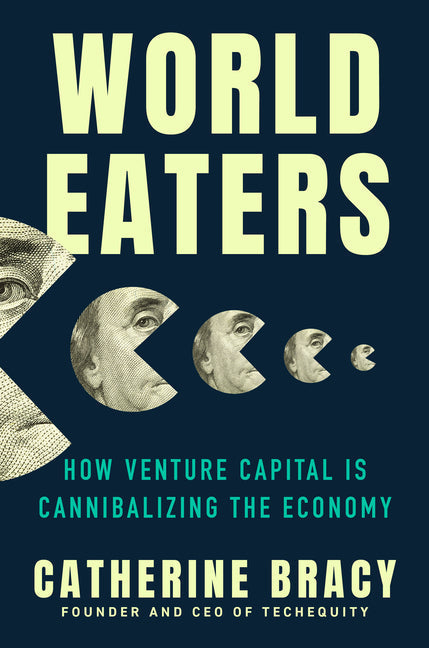
An Excerpt from World Eaters: How Venture Capital Is Cannibalizing the Economy
An excerpt from World Eaters by Catherine Bracy, published by Dutton and longlisted for the 2025 Porchlight Business Book Awards in the Current Events & Public Affairs category.
-

An Excerpt from Searches: Selfhood in the Digital Age
An excerpt from Searches by Vauhini Vara, published by Pantheon and longlisted for the 2025 Porchlight Business Book Awards in the Personal Development & Human Behavior category.
-
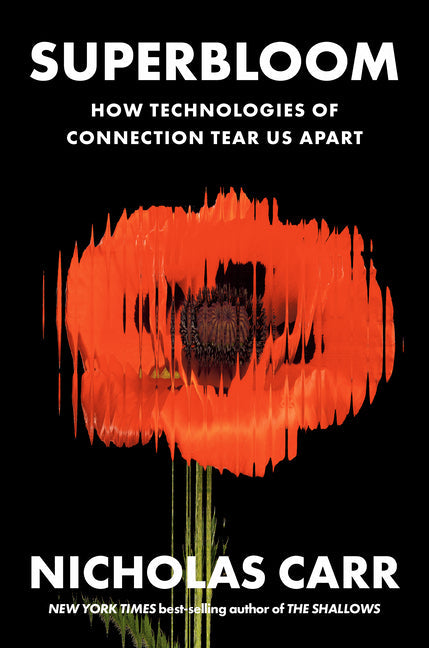
An Excerpt from Superbloom: How Technologies of Connection Tear Us Apart
An excerpt from Superbloom by Nicholas Carr, published by W. W. Norton & Company and longlisted for the 2025 Porchlight Business Book Awards in the Current Events & Public Affairs category.
-
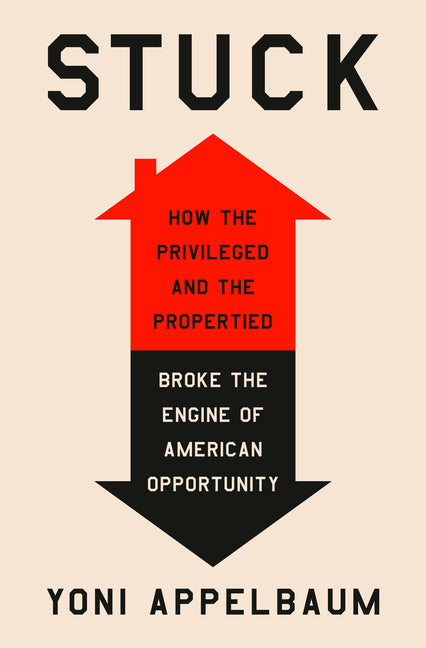
An Excerpt from Stuck: How the Privileged and the Propertied Broke the Engine of American Opportunity
An excerpt from Stuck by Yoni Applebaum published by Random House and longlisted for the 2025 Porchlight Business Book Awards in the Current Events & Public Affairs category.
-
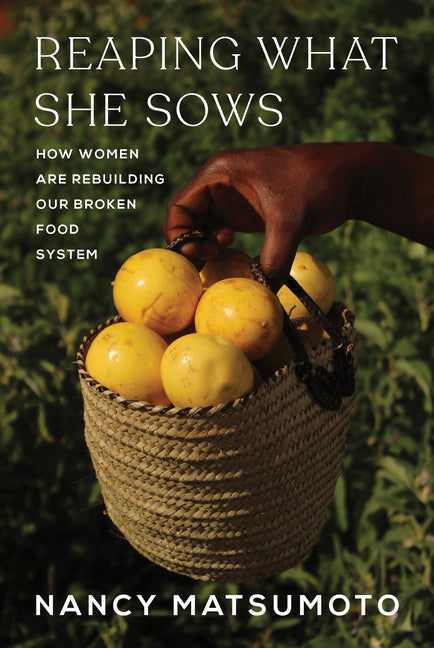
An Excerpt from Reaping What She Sows: How Women Are Rebuilding Our Broken Food System
An excerpt from Reaping What She Sows by Nancy Matsumoto, published by Melville House and longlisted for the 2025 Porchlight Business Book Awards in the Current Events & Public Affairs category
-

An Excerpt from The Land Trap: A New History of the World's Oldest Asset
An excerpt from The Land Trap by Mike Bird, published by Portfolio and longlisted for the 2025 Porchlight Business Book Awards in the Current Events & Public Affairs category.
-
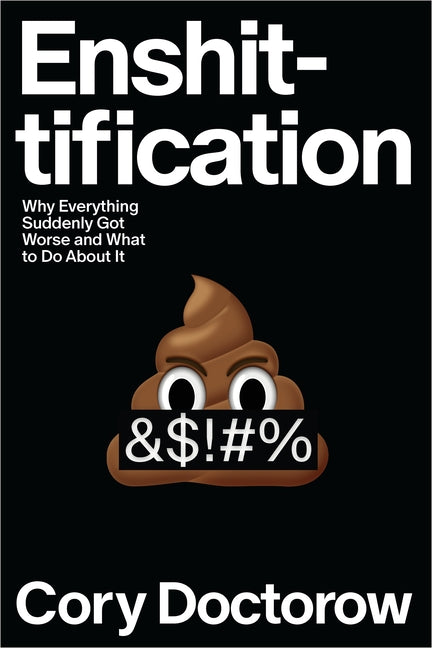
An Excerpt from Enshittification: Why Everything Suddenly Got Worse and What to Do about It
An excerpt from Enshittification by Cory Doctorow, published by MCD and longlisted for the 2025 Porchlight Business Book Awards in the Current Events & Public Affairs category.
-

An Excerpt from Empire of AI: Dreams and Nightmares in Sam Altman's OpenAI
An excerpt from Empire of AI by Karen Hao, published by Penguin Press and longlisted for the 2025 Porchlight Business Book Awards in the Current Events & Public Affairs category.
-
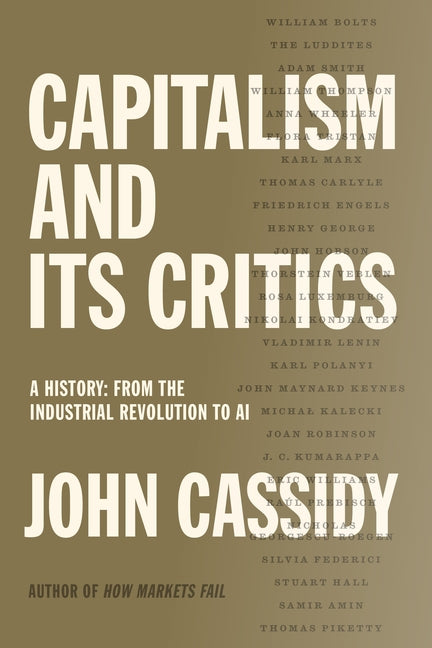
An Excerpt from Capitalism and Its Critics: A History: From the Industrial Revolution to AI
An excerpt from Capitalism and Its Critics by John Cassidy, published by Farrar, Straus and Giroux and longlisted for the 2025 Porchlight Business Book Awards in the Current Events & Public Affairs category
-
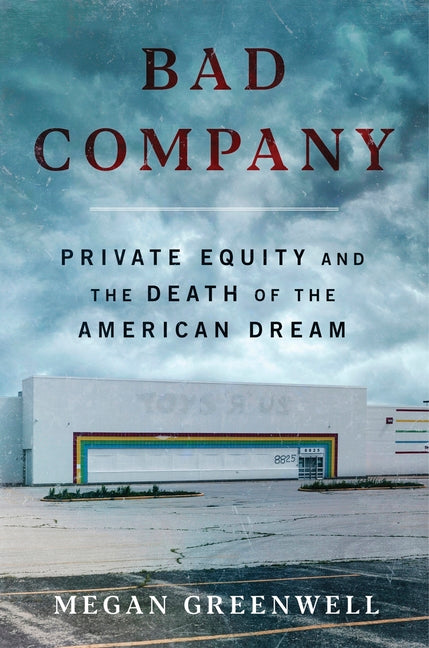
An Excerpt from Bad Company: Private Equity and the Death of the American Dream
An excerpt from Bad Company by Megan Greenwell, published by Dey Street Books and longlisted for the 2025 Porchlight Business Book Awards in the Current Events & Public Affairs category.
-
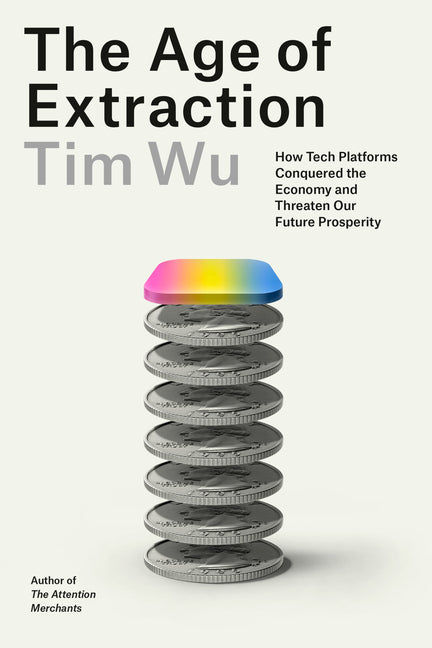
An Excerpt from The Age of Extraction: How Tech Platforms Conquered the Economy and Threaten Our Future Prosperity
An excerpt from The Age of Extraction by Tim Wu, published by Knopf and longlisted for the 2025 Porchlight Business Book Awards in the Current Events & Public Affairs category.
-

Tech Agnostic | An Excerpt from the 2024 Porchlight Big Ideas & New Perspectives Book of the Year
The 2024 Big Ideas & New Perspectives Book of the Year is Tech Agnostic: How Technology Became the World's Most Powerful Religion, and Why It Desperately Needs a Reformation by Greg Epstein, published by MIT Press.
-

The Vagina Business | An Excerpt from the 2024 Porchlight Creativity & Innovation Book of the Year
The 2024 Creativity and Innovation Book of the Year is The Vagina Business: The Innovative Breakthroughs That Could Change Everything in Women's Health by Marina Gerner, published by Sourcebooks.
-

Higher Ground | An Excerpt from the 2024 Porchlight Leadership and Strategy Book of the Year
The 2024 Leadership and Strategy Book of the Year is Higher Ground: How Business Can Do the Right Thing in a Turbulent World by Alison Taylor, published by Harvard Business Review Press.
-

The Truth About Immigration | An Excerpt from the 2024 Porchlight Current Events & Public Affairs Book of the Year
The 2024 Current Events & Public Affairs Book of the Year is The Truth about Immigration: Why Successful Societies Welcome Newcomers by Zeke Hernandez, published by St. Martin's Press.
-
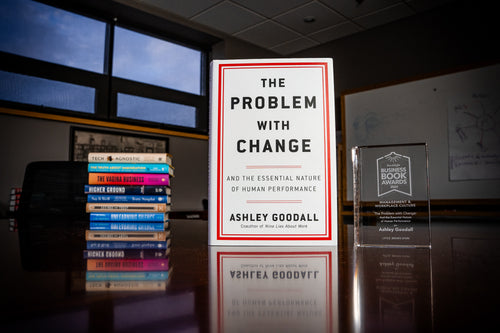
The Problem with Change | An Excerpt from the 2024 Porchlight Management & Workplace Culture Book of the Year
The 2024 Porchlight Management & Workplace Culture Book of the Year is The Problem with Change: And the Essential Nature of Human Performance by Ashley Goodall, published by Little, Brown Spark.
-
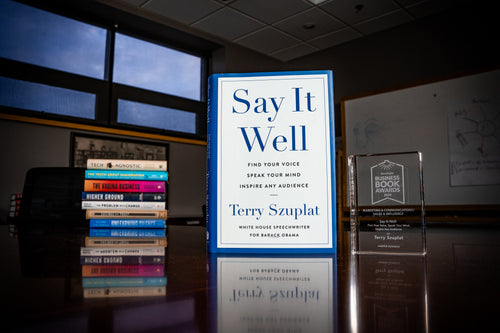
Say It Well | An Excerpt from 2024 Porchlight Marketing & Communications/Sales & Influence Book of the Year
The Marketing & Communications/Sales & Influence Book of the Year is Say It Well: Find Your Voice, Speak Your Mind, Inspire Any Audience by Terry Szuplat, published by Harper Business.
-
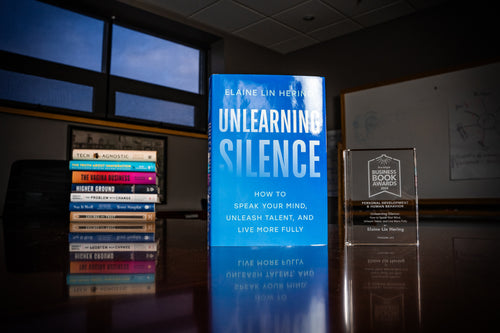
Unlearning Silence | An Excerpt from the 2024 Porchlight Personal Development & Human Behavior Book of the Year
The 2024 Personal Development & Human Behavior Book of the Year is Unlearning Silence: How to Speak Your Mind, Unleash Talent, and Live More Fully by Elaine Lin Hering, published by Penguin Life.
-

Savings and Trust | An Excerpt from the 2024 Porchlight Narrative & Biography Book of the Year
The 2024 Narrative & Biography Book of the Year is Savings and Trust: The Rise and Betrayal of the Freedman's Bank by Justene Hill Edwards, published by W. W. Norton & Company.
-
America's Bank: The Epic Struggle to Create the Federal Reserve
Roger Lowenstein has written a brilliant book on the founding of the Federal Reserve that informs and echoes the issues and arguments of today.
-

The Air They Breathe: A Pediatrician on the Frontlines of Climate Change
A pediatrician reveals the profound impact of climate change on children's health and emphasizes our moral responsibility to safeguard our most vulnerable.
-
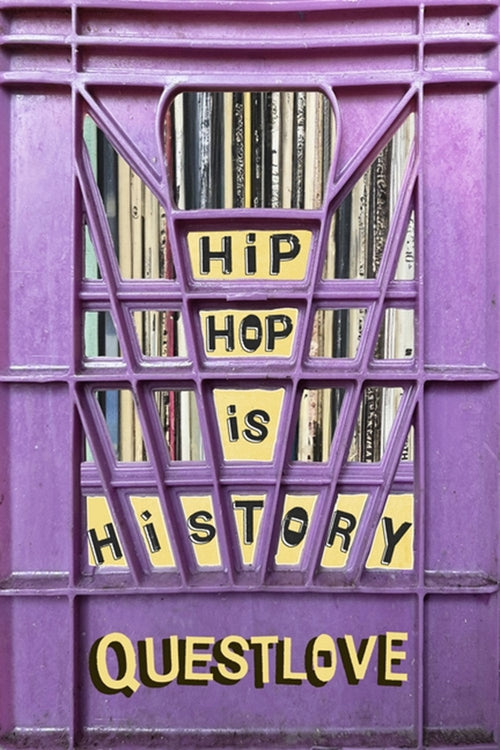
Hip-Hop Is History
2023 marked the 50th anniversary of hip-hop. Questlove helped tell that story at the 2023 Grammys, but that event is just the Introduction to the fuller, more personal history told in his new book on the topic.
-
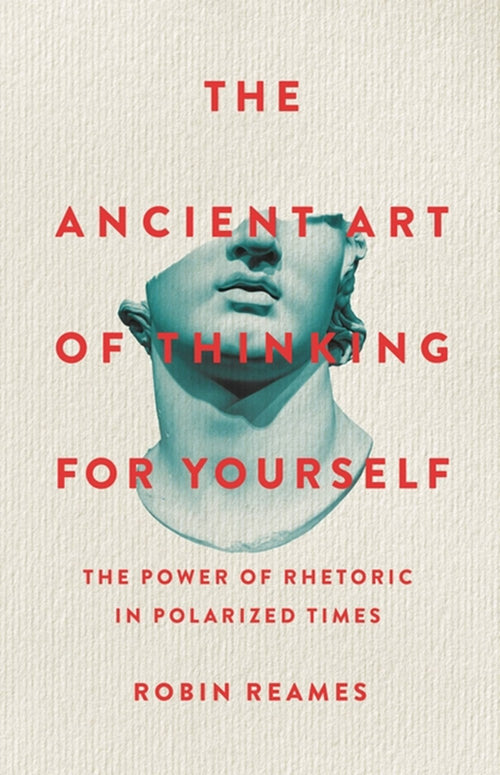
The Ancient Art of Thinking for Yourself: The Power of Rhetoric in Polarized Times
Robin Reames has written a powerful guide to parsing political rhetoric that looks at how experiments in self-governance have been ended in the past and offers tools for thinking that can help us preserve our own.
-
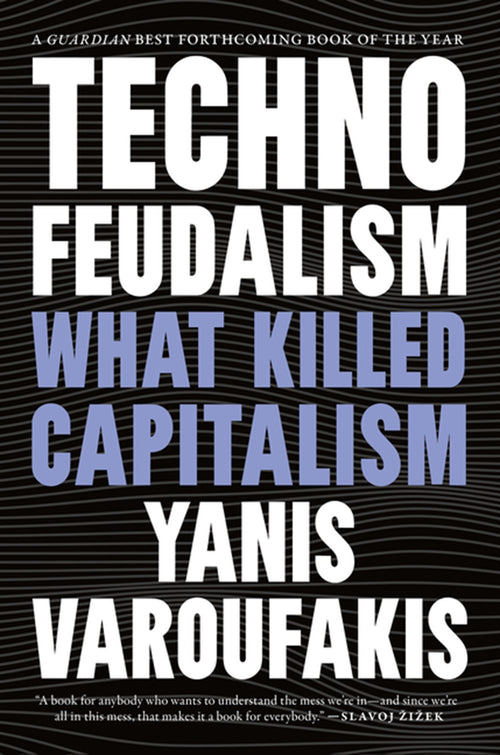
Technofeudalism: What Killed Capitalism
Yanis Varoufakis has pronounced capitalism dead. Even if you don’t believe it is worth saving, you’ll probably agree that what has replaced it is even more oppressive. But there may be a means for emancipation in the tools of our current exploitation.
-

The World Behind the World: Consciousness, Free Will, and the Limits of Science
Furthering our understanding of existential issues like human consciousness and free will is increasingly relevant to decisions we make about the existential problems we face. Erik Hoel's new book is a gift that helps us do just that.
-

Laughter in the Dark: Egypt to the Tune of Change
Yasmine El Rashidi gives us an update on the situation in Egypt through the lens of the country's hip hop scene.
-
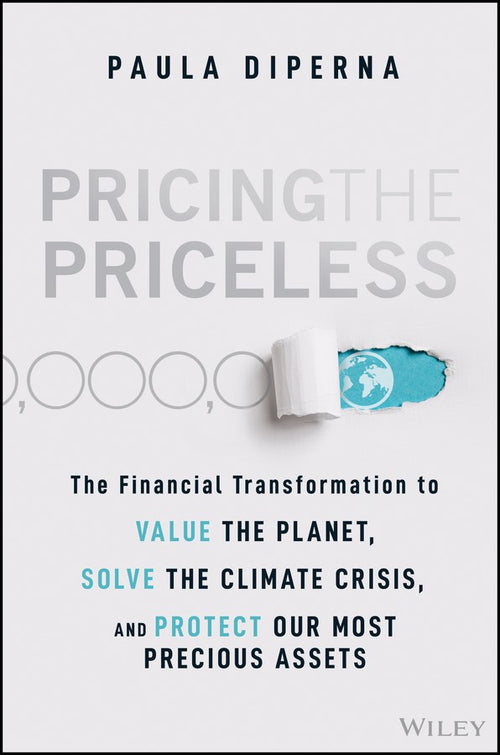
Pricing the Priceless: The Financial Transformation to Value the Planet, Solve the Climate Crisis, and Protect Our Most Precious Assets
Paula DiPerna writes beautifully about the moral bankruptcy of how value is assigned in our society, and of the sensible, sustainable ways we can flip the script to repair our economics and environment.
-
All the Gold Stars: Reimagining Ambition and the Ways We Strive
Rainesford Stauffer reminds us that it is not enough to be ambitious, and just how harmful personal ambition can be. The question is: what are we ambitious about?
-

The Song of Significance: A New Manifesto for Teams
"Let's get real or let's not play." Seth Godin's new manifesto for teams is about working well, leading well, and playing well with others.
-
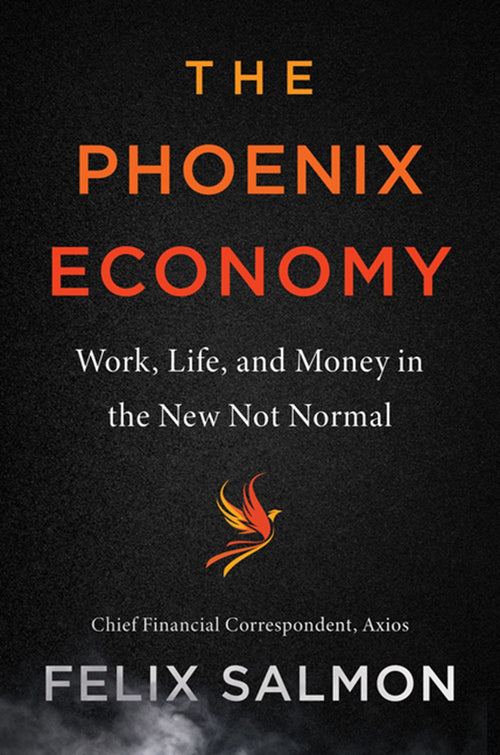
The Phoenix Economy: Work, Life, and Money in the New Not Normal
"The idea behind this book," writes Felix Salmon, "is that the unexpected isn’t over." A pronouncement like that offers both great hope and caution, and acts as an important reminder.
 Photo by Gabbi Cisneros
Photo by Gabbi Cisneros




























































